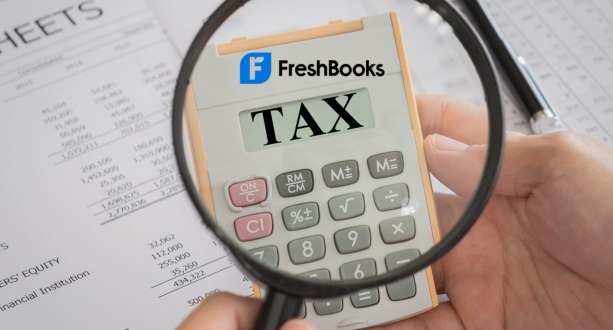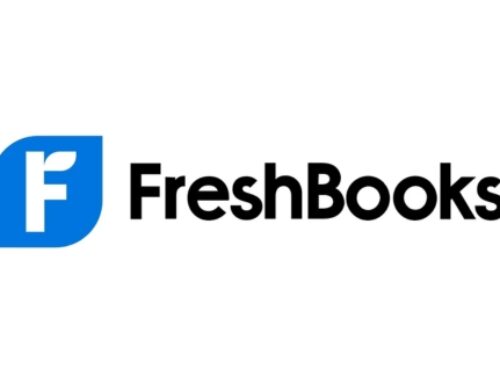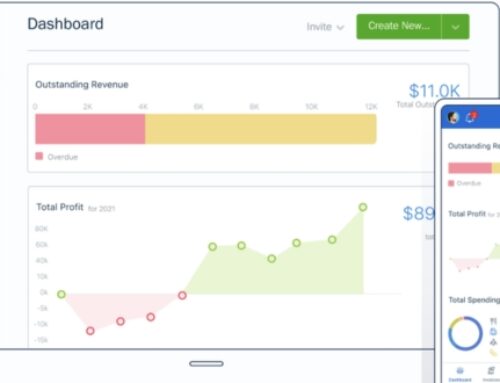Introduction of FreshBooks Tax Preparation and Planning
Effective tax preparation and planning play a pivotal role in the financial success and sustainability of businesses. As businesses navigate the complex landscape of taxation, it becomes crucial to adopt efficient tools and platforms that streamline tax-related processes. This is where FreshBooks emerges as a key player, offering innovative solutions to simplify and optimize the often daunting task of tax preparation.
Brief Overview of the Importance of Tax Preparation and Planning for Businesses:

Taxation is a fundamental aspect of running a business, and the impact it has on the financial health of a company cannot be overstated. Proper tax preparation and planning enable businesses to fulfill their legal obligations, minimize tax liabilities, and strategically allocate resources for growth and development. In an ever-evolving regulatory environment, businesses need to stay informed and proactive to ensure compliance with tax laws while optimizing their financial strategies.
Failure to navigate the intricacies of taxation can result in penalties, legal issues, and financial setbacks. As such, businesses must prioritize comprehensive tax planning to mitigate risks, seize opportunities, and enhance their overall financial stability. In this context, the role of technology becomes crucial in providing tools that facilitate efficient tax management.
Introduction to FreshBooks and Its Role in Simplifying Tax-Related Processes:

FreshBooks is a leading cloud-based accounting software designed to empower businesses with intuitive tools for financial management, including tax-related processes. With its user-friendly interface and robust features, FreshBooks aims to simplify complex accounting tasks, making them accessible even to those without extensive financial expertise.
FreshBooks streamline tax preparation by automating various aspects of the process, such as expense tracking, invoicing, and financial reporting. Its comprehensive suite of tools allows businesses to organize financial data efficiently, ensuring that they have a clear and accurate overview of their financial health. By providing real-time insights and facilitating collaboration between accountants and business owners, FreshBooks enhances the efficiency and accuracy of tax-related activities.
As businesses recognize the critical importance of effective tax preparation and planning, platforms like FreshBooks emerge as invaluable allies in simplifying and optimizing these processes. The integration of technology not only ensures compliance with tax regulations but also empowers businesses to make informed financial decisions that contribute to long-term success and sustainability.
Understanding Tax Preparation

Importance of Accurate and Timely Tax Preparation
Accurate and timely tax preparation is crucial for individuals and businesses alike. Taxes are a fundamental aspect of financial responsibilities, and proper preparation ensures compliance with tax laws, regulations, and deadlines. Failing to file accurate tax returns on time can result in penalties, fines, and legal consequences. Moreover, accurate tax preparation helps individuals and businesses take advantage of available deductions and credits, optimizing their tax liability. It provides a clear financial picture, aids in financial planning, and fosters transparency in financial reporting. Ultimately, accurate and timely tax preparation is essential for maintaining financial health and adhering to legal obligations.
Common Challenges Faced by Businesses in Tax Preparation
Businesses often encounter various challenges during the tax preparation process. Complexity in tax codes, changing regulations, and evolving business structures contribute to the difficulties faced. Inaccurate record-keeping, incomplete documentation, and the lack of a streamlined process can lead to errors in tax filings. Additionally, businesses may struggle with staying updated on tax law changes and understanding how they apply to their specific industry or operations. Compliance with multiple tax jurisdictions and the need for precision in calculations further compound the challenges. Overall, businesses grapple with a range of obstacles that make tax preparation a complex and demanding task.
Overview of How FreshBooks Addresses These Challenges
FreshBooks, a cloud-based accounting software, offers solutions to alleviate the challenges businesses face in tax preparation. The platform simplifies the recording and tracking of financial transactions, reducing the likelihood of errors in record-keeping. Its user-friendly interface allows businesses to manage invoices, expenses, and receipts efficiently, facilitating comprehensive documentation for tax purposes.
FreshBooks also provides real-time updates on tax law changes, ensuring businesses stay informed and compliant. The software automates calculations, minimizing the risk of miscalculations and enhancing overall accuracy in tax filings. With features tailored to different industries, FreshBooks streamlines tax preparation for businesses, making the process more accessible and less daunting. In summary, FreshBooks addresses the intricate challenges of tax preparation by providing a comprehensive and user-friendly platform for businesses to manage their financial data effectively.
Features of FreshBooks Tax Preparation
Streamlined Data Entry and Organization
FreshBooks Tax Preparation offers a range of features to streamline data entry and organization for users:
Automated Expense Tracking: Users can benefit from an automated system that tracks and categorizes expenses. This feature saves time and minimizes errors associated with manual data entry, ensuring accuracy in financial records.
Invoice Management: FreshBooks facilitates efficient invoice management, allowing users to create, send, and track invoices seamlessly. This feature ensures that all financial transactions are well-documented, making it easier for users to keep track of their income.
Bank Reconciliation Features: The platform includes robust bank reconciliation features that assist users in matching their accounting records with bank statements. This not only ensures the accuracy of financial data but also aids in identifying any discrepancies that may require attention.
Integration with Financial Institutions and Third-Party Apps
FreshBooks Tax Preparation is designed to integrate seamlessly with various financial institutions and third-party applications:
Seamless Connection with Bank Accounts: Users can connect their bank accounts directly to FreshBooks, allowing for real-time updates on transactions. This feature enhances efficiency by eliminating the need for manual data entry and reducing the risk of errors.
Integration with Accounting Software: FreshBooks integrates smoothly with popular accounting software, providing users with a comprehensive financial ecosystem. This interoperability ensures that users can leverage existing tools while benefiting from the specialized features offered by FreshBooks Tax Preparation.
Synchronization with Payment Gateways: The platform offers synchronization with multiple payment gateways, facilitating the smooth flow of financial transactions. Whether receiving payments or making purchases, users can rely on synchronized payment gateways to streamline their financial processes.
FreshBooks Tax Preparation stands out through its focus on streamlined data entry, organization, and integration capabilities. By automating key processes, connecting with financial institutions, and syncing with third-party applications, it provides users with a comprehensive and efficient solution for tax preparation and financial management.
FreshBooks Tax Planning Tools
FreshBooks Tax Planning Tools offer a comprehensive set of features to help businesses effectively manage their finances and plan for taxes. These tools are designed to streamline the often complex process of tax planning, making it more accessible and efficient for users.
Forecasting and Budgeting Features:
One of the key aspects of FreshBooks Tax Planning Tools is its robust forecasting and budgeting features. Users can access real-time financial insights, gaining a clear understanding of their current financial standing. This capability allows businesses to make informed decisions based on up-to-date information. Moreover, the tools enable users to project future income and expenses, aiding in long-term financial planning and helping businesses stay prepared for potential fluctuations.
Tax-Saving Strategies:
FreshBooks provides users with valuable tax-saving strategies to optimize their financial performance. The tools include features for deduction tracking, ensuring that businesses can easily monitor and maximize their eligible deductions. Additionally, the system allows for expense categorization tailored for tax optimization. This ensures that expenses are appropriately allocated, providing businesses with the opportunity to minimize their tax liabilities.
Collaboration Features for Accountants and Tax Professionals:
Recognizing the importance of collaboration in effective tax planning, FreshBooks Tax Planning Tools include features specifically designed for accountants and tax professionals. These collaboration features facilitate seamless communication and data sharing between businesses and their financial advisors. This ensures that all relevant stakeholders have access to the necessary information, fostering a more collaborative and coordinated approach to tax planning. By promoting efficient collaboration, businesses can enhance the accuracy and effectiveness of their tax strategies.
FreshBooks Tax Planning Tools offer a well-rounded solution for businesses seeking to streamline their tax planning processes. With features ranging from real-time financial insights to collaboration tools for professionals, FreshBooks aims to empower users with the tools they need to make informed financial decisions and optimize their tax strategies.
FreshBooks and Compliance
FreshBooks plays a crucial role in ensuring compliance with tax regulations, providing businesses with a comprehensive solution to navigate the complexities of taxation. One key aspect of this is its ability to address country-specific tax requirements. Tax laws vary significantly from one country to another, and FreshBooks is designed to accommodate these differences seamlessly. By staying up-to-date with the tax codes of various countries, FreshBooks assists businesses in meeting their tax obligations accurately and efficiently.
Moreover, FreshBooks excels in its adaptability to changes in tax laws. Tax regulations are subject to frequent updates and modifications, and businesses need a reliable platform that can swiftly incorporate these changes into their financial processes. FreshBooks ensures that its users are equipped with the latest tools and features to remain compliant with the ever-evolving tax landscape.
In the realm of tax reporting, FreshBooks provides a user-friendly interface for generating and filing essential tax reports. The platform simplifies the preparation of income statements, allowing businesses to present a clear overview of their financial performance. This feature is instrumental in helping businesses assess their profitability and make informed decisions based on accurate financial data.
Additionally, FreshBooks supports the creation of balance sheets, offering businesses a snapshot of their financial position at a given point in time. Balance sheets are vital for assessing the company’s assets, liabilities, and equity, providing a comprehensive view of its financial health.
When it comes to tax return reports, FreshBooks streamlines the filing process, ensuring that businesses can submit their tax returns accurately and on time. The platform’s features facilitate the compilation of necessary information, reducing the likelihood of errors and minimizing the risk of penalties associated with late or inaccurate filings.
FreshBooks not only addresses the intricacies of country-specific tax requirements and stays abreast of regulatory changes but also provides a robust set of tools for generating and filing key tax reports. This comprehensive approach makes FreshBooks an invaluable asset for businesses aiming to maintain compliance and navigate the complexities of taxation seamlessly.
User Experience and Interface
User Experience and Interface play a crucial role in the success of any software or application, shaping how users interact with and perceive the system. A well-crafted user experience involves several key elements that contribute to its effectiveness.
Intuitive Design for Easy Navigation:
The first aspect, intuitive design, focuses on creating a user interface that is easy to understand and navigate. This involves organizing information logically, employing familiar navigation patterns, and using clear, concise language. By minimizing complexity and cognitive load, intuitive design ensures that users can quickly grasp how to interact with the system without the need for extensive training. Intuitive navigation enhances user satisfaction, reduces errors, and ultimately leads to a more positive overall experience.
User-Friendly Dashboards and Reports:
User-friendly dashboards and reports are integral components of an effective user interface. Dashboards provide users with a visual overview of relevant information, allowing them to monitor key metrics and performance indicators at a glance. These should be designed with simplicity in mind, presenting data in a visually appealing manner while avoiding unnecessary clutter.
Additionally, interactive elements within dashboards enhance user engagement, enabling users to customize their views and focus on the most critical aspects of the data. Clear and comprehensible reports further contribute to a positive user experience by providing in-depth insights without overwhelming the user with unnecessary details.
Customization Options for Personalized Usage:
Customization options are essential for accommodating diverse user preferences and needs. By allowing users to personalize their experience, software becomes more adaptable to individual workflows. Customization options can include the ability to rearrange dashboard elements, select preferred themes, and configure settings based on individual requirements. This not only enhances user satisfaction but also promotes a sense of ownership and control. A system that can be tailored to meet the specific needs of its users is more likely to be embraced and effectively utilized.
An optimal User Experience and Interface are built on the principles of intuitive design, user-friendly dashboards, and customization options. Together, these elements create a seamless and engaging interaction between users and the software, fostering a positive and productive user experience. Investing in a thoughtful and well-designed interface is not just about aesthetics; it directly impacts user efficiency, satisfaction, and the overall success of the software application.
Tips and Best Practices
Maximizing the benefits of FreshBooks for tax preparation and planning:
1. Comprehensive Income Tracking:
– Ensure that all sources of income are accurately recorded in FreshBooks. This includes sales, services rendered, and any other revenue streams.
– Use FreshBooks’ invoicing features to create and send professional invoices to clients. The system can automatically track invoice statuses, making it easier to identify outstanding payments.
2. Expense Management:
– Regularly input all business-related expenses into FreshBooks. This includes receipts, bills, and any other relevant expenditure.
– Leverage FreshBooks’ expense categorization and tagging features to classify expenses appropriately. This helps in the easy identification of deductible expenses during tax preparation.
3. Bank Reconciliation:
– Regularly reconcile your bank and credit card accounts within FreshBooks. This ensures that your financial records are accurate and up-to-date.
– Identify and rectify any discrepancies promptly to maintain the integrity of your financial data.
4. Tax Categories and Codes:
– Familiarize yourself with the tax categories and codes within FreshBooks. Ensure that your transactions are appropriately tagged with the correct tax information.
– This feature is particularly useful for businesses that operate in multiple tax jurisdictions or have specific tax requirements.
5. Generating Tax Reports:
– FreshBooks offers various reporting features that can be tailored for tax purposes. Utilize these reports to get a comprehensive view of your financial data.
– Key reports include Profit and Loss Statements, Expense Reports, and Tax Summary Reports. These can simplify the tax preparation process and provide valuable insights into your financial performance.
6. Integration with Tax Software:
– Take advantage of FreshBooks’ compatibility with popular tax software or services. This integration can significantly reduce manual data entry and the risk of errors.
– Check for updates to these integrations to ensure compatibility with the latest tax regulations and standards.
7. Regular Backups:
– Ensure that you regularly back up your FreshBooks data. This is crucial in case of any system failures or data loss.
– Having a backup ensures that you have access to historical financial data, which may be needed for tax audits or inquiries.
8. Tax Planning Features:
– FreshBooks can assist in tax planning by providing insights into your financial health. Use the forecasting features to project future income and expenses.
– Plan for tax-deductible expenses based on historical data to optimize your tax liability.
9. Client and Vendor Management:
– Keep your client and vendor information up-to-date in FreshBooks. This is essential for accurate invoicing and tracking payments.
– Utilize FreshBooks’ client reports to analyze client-specific financial data, which can be useful for both tax planning and client management.
10. Training and Support:
– Stay informed about FreshBooks updates and improvements. The platform may introduce new features or enhancements that could further streamline tax-related tasks.
– Take advantage of FreshBooks’ training resources and customer support to enhance your proficiency in using the platform for tax-related purposes.
11. Collaboration and Accessibility:
– If you work with an accountant or tax professional, use FreshBooks’ collaboration features. Grant them access to relevant data to facilitate a smoother tax preparation process.
– FreshBooks’ cloud-based nature allows you to access your financial data from anywhere, providing flexibility and convenience during tax planning and preparation.
12. Educational Resources:
– Explore FreshBooks’ educational resources, webinars, and documentation. These materials can provide insights into best practices for tax preparation and planning using the platform.
In conclusion, maximizing the benefits of FreshBooks for tax preparation and planning involves consistent and accurate record-keeping, utilizing features specific to tax-related tasks, staying informed about updates and integrations, and leveraging the platform’s capabilities for comprehensive financial management. By incorporating these strategies, individuals and businesses can streamline their tax-related processes, save time, and minimize the risk of errors.








